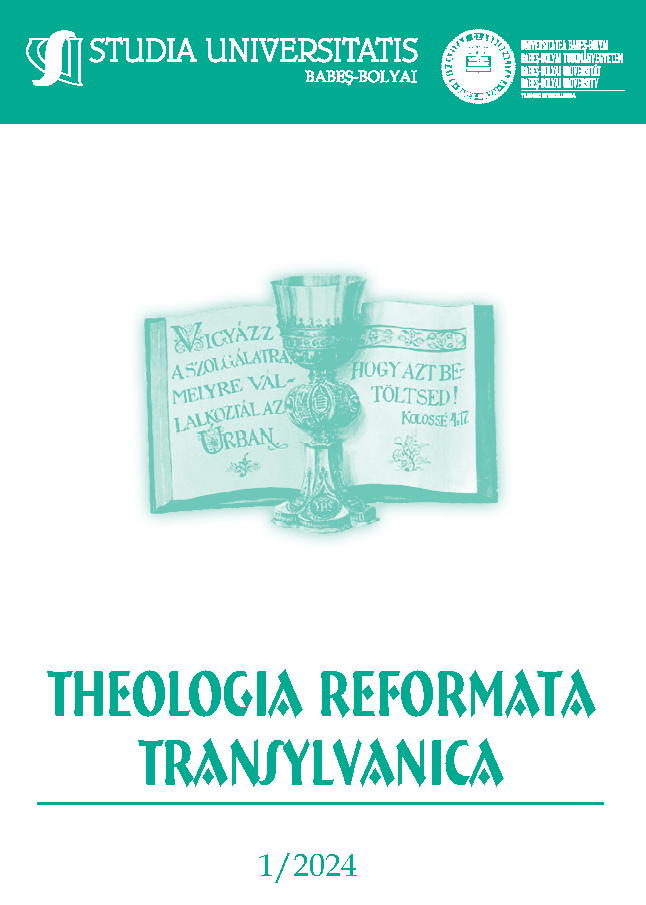Protestáns konfessziók együttélése – szövetségek, uniók mint egzisztenciális stratégia
DOI:
https://doi.org/10.24193/subbtref.69.1.11Keywords:
union, Protestant denominations, 17th century, intolerance, cooperation, Hungarian KingdomAbstract
The Coexistence of Protestant Confessions – Alliances, Unions as an Existential Strategy
It is generally known that during the Reformation, there was no good relationship between the Protestant denominations, and rather discord and intolerance characterized the relationship between the Lutheran and Calvinist churches in particular. The same applied to the rejectionist and sometimes-persecutory attitude of the two leading Protestant doctrines towards radical tendencies. This was manifested on several levels and for different reasons. First and foremost, it was caused by theological differences, i.e. each Reformation doctrine was convinced of the sole truth of its own doctrine. These disagreements were manifested in the first joint Protestant synods and later in disputes between individual theologians, in polemical writings, but also in the denial of any unification of religions. Another important factor that influenced the bad relationship was, of course, the loss of believers. Especially the Evangelical Church, which had been established in the mid-16th century, feared that the later spreading Swiss Reformation doctrines would cause a loss of believers. However, there have been individual, local examples where different Protestant religions have been able to cooperate and ally with each other very well and profitably when mutual benefit or even existential motivation was at stake. The paper would like to outline some examples of this: the union between the Protestants and the Reformed in Zemplín County existing throughout six decades in the 17th century, the union between the Reformed Church and the Bohemian brethren concluded in 1647, and the union in the form of smooth coexistence between the Protestants and the Reformed in Košice in the first half of the 17th century.
References
BODNÁROVÁ, Miloslava (1998): Reformácia vo východoslovenských mestách v 16. storočí, In ULIČNÝ, Ferdinand (szerk.): Reformácia na východnom Slovensku v 16–18. storočí. Prešov, Biskupský úrad Východného dištriktu ECAV na Slovensku. 27.
DIENES Dénes (2008): Zempléni vizitációk. Sárospatak, Sárospataki Református kollégium tudományos gyűjteményei.
(2009): Református–evangélikus unió Zemplén vármegyében a 16–17. században, In: Nezameniteľné je dedičstvo otcov... ACEP X. Prešov, Vydavateľstvo Prešovskej univerzity. 173–174.
(2011): A történelmi Tiszáninneni Református Egyházkerület a 16. században, In: Historia Ecclesistica. 1. 2.
(2018): Egy 16. századi református arisztokrata olvasási szokásai. Ecsedi Báthory István két könyve Sárospatakon, In: Reformácia v strednej Európe/Reformáció Közép-Európában/ Reformation in Mittel-Europa. I. Prešov, Vydavateľstvo Prešovskej univerzity. 443–445.
HÖRK József (1885): A Sáros-zempléni evangélikus esperesség története. Kassa
IMRE Sándor (1898a): Alvinczi Péter kassai magyar pap élete. Hódmezővásárhely, H.-M.-Vásárhelyi Ny.
(1898b): Alvinczi Péter életéből, In: Protestáns Szemle. 10. 9.
KILIÁN, Ján (2023): Třicetiletá válka. Stručná historia. Prága, Paseka.
Kolektív autorov (1956): Jednota bratrská 1457–1957. Sborník k pětistému výročí založení. Prága, Kalich.
KÓNYOVÁ, Annamária (2016): Náboženské články Šopronského snemu z r. 1681, In: Kónya Péter – Németh István H. (szerk.): Mestá na sneme [print] : ochrana mestských záujmov v období stavovského a občianskeho parlamentarizmu [Városi érdekvédelem a rendi és polgári parlamentarizmus időszakában). Prešov, Vydavateľstvo Prešovskej univerzity. 328–338.
KÓNYOVÁ, Annamária – KÓNYA, Peter (szerk.) (2018): Konfesionálny vyvin Uhorska v ranom novoveku. Presov, VPU.
KÖBLÖS József – KRÁNITZ Zsolt (2009): A Dunántúli Református Egyházkerület prédikátorai és rektorai I.: 1526–1760. Pápa, Pápai Református Gyűjtemények.
KRASINSKI, Valerjan (1903): Zarys dziejów reformacji w Polsce 1. Varsó, Nakladem „Zwiastuna Evangelicznego”.
LUKÁCS Olga (2017): The Irenical Impact of David Pareus’ Work on the Hungarian Protestant Churches, In: Transylvanian Review. 2017/3. 38–53.
LUKÁCS Olga (2018): David Pareus hatása a magyar protestáns egyházakra, In: Studia Universitatis Babeș–Bolyai, Theologia Reformata Transylvanica. 2018/2. 105–119.
Magyar harmonia, az az, Augustana es az Helvetica confessio articulussinac eggyezoe ertelme / mellyet Samaraeus Janos superattendens’ ... rendoelt oeszve. Szepes-Varallyai Bernhard Máthé által, Nyomtattatot Papan.
MÜLLER, Josef Theodor (1923): Dějiny Jednoty Bratrské. 1. vyd. Prága, Jednota Bratrská.
ODLOŽILÍK, Otakar (1931): Čestí bratři a Slovensko, In: Časopis Matice Moravské. XX. 9.
RÉVÉSZ Kálmán (1894): Százéves küzdelem a kassai református egyház megalakulásáért 1550–1650. Budapest.
RÉZ László (1899): A Drugethek és Homonna reformátiója. Sátoraljaújhely, Zemplén Könyvnyomtató Intézet.
ŘÍČAN, Rudolf (1957): Dějiny Jednoty bratrské: s kapitolou o bratrské theologii od ThDr Amadea Molnára. 1. vyd. Prága, Kalich.
SÍMEN Dániel (1943): Magyar reformáció és unitarizmus, In: Keresztény Magvető. 75. 1. 4–12.
SZABÓ András (1984): Egri Lukács „megtérése”. (Az antitrinitarizmus Északkelet-Magyarországon 1565–1574), In: Irodalomtörténeti közlemények. 88. 5–6. 543–557.
SZABÓ Lajos (1944): Kassai kálvinista krónika (1644–1944). Kassa.
SZILÁGYI Sándor (szerk.) (1882): Erdélyi Országgyűlési Emlékek (EOE). VIII. kötet. 13.; EOE IX. kötet.
ZOVÁNYI Jenő (1977): Magyarországi protestáns egyháztörténeti lexikon. Budapest.
Downloads
Published
How to Cite
Issue
Section
License
Copyright (c) 2024 Studia Universitatis Babeș-Bolyai Theologia Reformata Transylvanica

This work is licensed under a Creative Commons Attribution-NonCommercial-NoDerivatives 4.0 International License.






